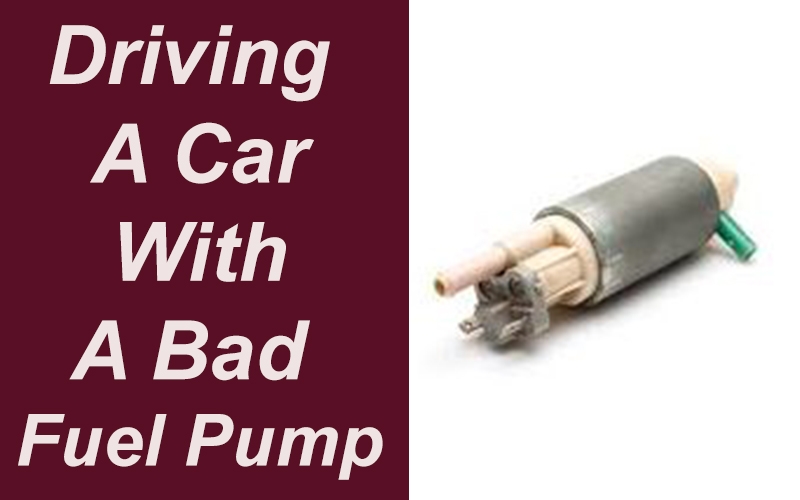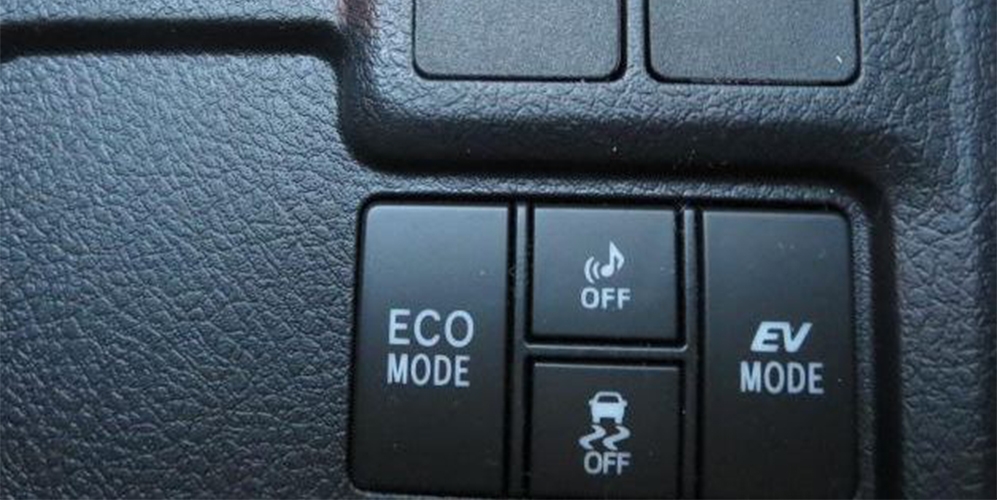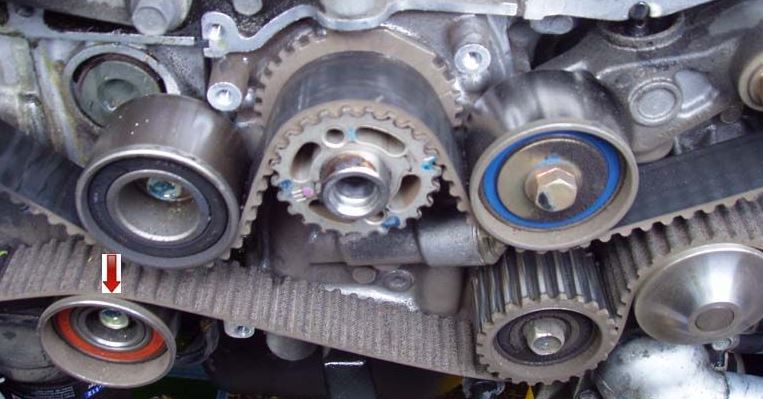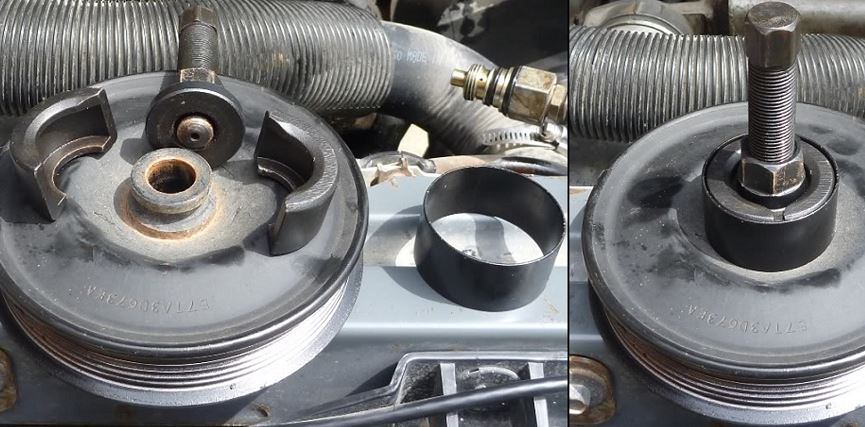Last updated on January 14th, 2023 at 08:08 am
Suddenly hearing high-pitched squealing sounds from your car can be quite a scare. However, you don’t have to worry; in this article, I will be providing some quality insights on the causes and what to do about them.
Causes of high pitched squeal from the car when moving
There are a few common causes of high pitched squeal noise from a car when in motion and they are listed as follow:
- Power steering issues
- Engine overheating
- Bad engine bearing
- Loose of slipped belt
You may have a slacked or damaged fan belt if you hear a loud squeal while moving, particularly when your car is just starting up. If your fan belts are worn, likely, your timing belt is also due for replacement.
Roadmap of this article:
- Causes of high pitched squeal from car when moving
- What is causing the high pitched squeal from car when moving but stops when braking
- Why is do I hear a chirping noise while driving but not brakes applied
- Cause of squeaking noise when driving from wheel
- What is the cause of a high-pitched squeal from the car when accelerating
- Reason for the loud screeching noise from a car while driving
- Cause of a car making high-pitched noise when off
- why does my car make a noise when I start it
- reason for car making a squeaking noise when driving slow
Keynote: You can save cost by making a compound repair/replacement rather than prioritizing one issue over another.
This is an excellent idea because both are rubber components that grow brittle with age and replacing them together rather than individually saves money and time.
In summary, when your automobile makes a squeaky noise while driving, it’s time to get it inspected by a specialist.
Related article: Why Your Car Won’t Start But Makes Clicking Noise
Causes of high-pitched squeal from car when moving
When your car is moving, does it make a high-pitched squealing sound? In many cases, several of these sounds are designed to attract your attention as a reminder that it’s time for service. Let’s look at some possible causes of squealing sounds in your car.
1. Power steering issues
Electrically powered power steering is becoming more common in automobiles. With this new development, you won’t have to worry about power steering fluid or other hydraulic system components.
However, most automobiles today have a hydraulic power steering system that uses a specific fluid. You’ll probably hear a screeching sound when this fluid is low, or the pump is about to fail. When the steering wheel is rotated completely to one side, this sound is generally at its worst.
2. Engine overheating
If you’re hearing a high-pitched sound, rather than letting things slide, you must pay close attention to what is happening beneath the hood of your car.
Handling the radiator cap can cause burns, and removing the top while the engine is under pressure can result in a boiling coolant eruption. A little steam and an engine heating warning light are usually present when this problem occurs.
3. Bad engine bearing
A serpentine belt runs around pulleys, at least one tensioner, and perhaps an idler pulley or two in many of these newer cars.
This belt drives critical components such as the air conditioner compressor, power steering pump, and the engine’s water pump, among others. In addition, all of the pulleys in this system contain bearings that can wear out after a certain amount of time.
4. Loose, wore out or slipped belt
Cars used to have a few belts to run various components. Each belt on these old automobiles must be carefully set to the correct tension, not too tight to damage the pulley bearing but not too slack to slip. These belts made a lot more noise, as you could expect. Thankfully, several modern automobiles have a single serpentine belt that runs through all components and is routed through pulleys.
What is causing the high-pitched squeal from the car when moving but stops when braking?
There are cases when your car makes a squeaking or screaming sound while moving, but the noise goes away when you use the brakes; I’m guessing your brake wear indicator is slamming against the rotor and producing the noise.
Note: A little metal tab is attached to the brake pad as a wear indication. This metal tab begins to drag along the rotor when the brake pads are worn down and need to be replaced, alerting the driver to the possible problem.
Possible cause of the sound:
- Jamming on the brakes
- Loose brake components
- Carrying hefty weights
- Brake rotor that has been rusted
Finally, you can say it’s a sign that your brake pads are warning you it’s time to change them when moving if your car squeaks or squeals when you press the brakes. Brake pads have built-in indicators that warn drivers when they’re worn out, so contact your technician and get some new pads installed.
Why do I hear a chirping noise while driving but not brakes applied?
When driving, if you hear a chirping or screeching noise, it typically signifies a belt is loose and sliding, or the auxiliary drive pulley has gotten misaligned. The chirps will most likely occur seldom and with varying frequency depending on the driving you to undertake.
Whenever an engine’s timing or serpentine belt gets loose or broken, the sound frequently occurs.
Some car belts may be modified; others must be replaced. Loose belts may permanently harm engines if they are not fixed. In addition, excessive belt wear might lead to a belt breaking.
Cause of squeaking noise when driving from wheel
This might occur when the wear indicator establishes mild contact with the surface of the braking rotor. When your brake pad wears to a particular point, creating a high-pitched squeak every time the automobile is driven.
Possible causes:
- Ignored misaligned tires that aren’t fixed right away
- The tread pattern on your tires
- Bad roads might cause your wheels to get tense.
Weird noises coming from your automobile are tough to ignore; a strange noise might suggest that the overall condition of your car is amiss and needs to be corrected. When the brake pedal is pressed and the brake is applied, noises created by a wear indicator cease, but they return quickly whenever the brake pedal is released.
What is the cause of a high-pitched squeal from the car when accelerating?
If you hear a squealing sound while accelerating, there are several possible causes, however…
One of the most common causes is that the water pump installed was defective. To troubleshoot the issue and figure this out, you can use a “mechanic’s stethoscope” (visit a professional mechanic to get this done) on various parts of the engine to find out the exact point or place where the squeal is coming from.
This is most certainly the case if the sound originates near the water pump. If this is the case, I would suggest that the water pump be changed once more.
Reason for the loud screeching noise from a car while driving
You may have heard a squealing sound coming from your automobile while driving. In this section, we’ll go through the possible reasons in detail.
Then, after you have determined when the noise happens, schedule an appointment with a technician as soon as possible.
They’ll need to check your car and, depending on the condition, might have to test drive it to figure out what’s wrong.
Reasons for loud screeching noise while driving
- Alternator bearings that have worn out:
- Cambelt failure
- Problems with the suspension system
- Issues with the power steering system
- Tires that have been worn out
It goes without saying that paying attention when your car makes strange squeaking noises is crucial. As we mentioned earlier, most screeching sounds are like mechanisms to indicate that something is amiss, and you should get professional help to fix the problem.
Cause of a car making high-pitched noise when off
In a situation where you hear a high-pitched whistling or squeaking noise after turning off your automobile, it might be coming from the radiator pressure cap. This cap is meant to vent excess heat from the overheated coolant. However, the rubber gasket on the part can sometimes fail, allowing air to flow out.
In certain cases, this is due to dieseling. However, even when your car is off, this might occur due to gasoline igniting in the cylinder. Furthermore, it happens only by compression rather than the sparkplug. Although this problem is more common in older carbureted engines than in modern fuel-injected engines, don’t be shocked if your motor coughs several times after you switch it off.
Why does my car make a noise when I start it?
The starter could have an issue if you hear a grinding or screaming sound when starting your automobile. For example, the starter may not line up correctly with the ring gear on the flywheel, the gear teeth may be missing or broken, or the solenoid may malfunction.
One of the most common remedies is to replace the starter. The ring gear on the flywheel, on the other hand, will need to be replaced if it is damaged.
From a different perspective, if you’ve ever heard a loud, screeching, squealing noise from the front of your automobile when you turn the key, you may have a serpentine belt that is deteriorating or reaching its end life.
Reason for car making a squeaking noise when driving slow
The serpentine belt is a long rubber belt that travels around several pulleys and wheels in front of the engine. The belt may be coupled to the crankshaft as well as other systems such as the AC compressor.
Note: Whenever your car is producing this noise, you should examine the belt for signs of wear and replace it as soon as feasible. The belt might slip off the pulleys if left unattended for too long, rendering the systems that rely on it inoperable.
Components like the alternator, power steering system, and maybe additional pumps, depending on the make and type of your car. In other words, it’s an important part of a lot of your car’s components.
Reason for car making a squeaking noise when driving slow
The squeaking sound might be various things, and only experience can tell you what they are. For example, it’s much more difficult to figure out which wheel it’s coming from if it’s coming from one.
Metal rubbing against metal produces a squeaking noise. For example, in my experience, when you drive slowly, brake pads and discs that have been improperly installed or are worn out may often make a squeaking noise.
The brake caliper tightens around the pad once you apply pressure to the brake pedal, slowing the movement. The more you use your brake pads, the thinner they become, so you’ll probably need to replace them at least once over the life of your car.

Hi dear, I am Dennis Gift, an autobody repair technician with over 4 years of experience; and I love everything about fitness and cars and researching and sharing my experience. And this is where I get to do that freely without reservations. So come along with me.




